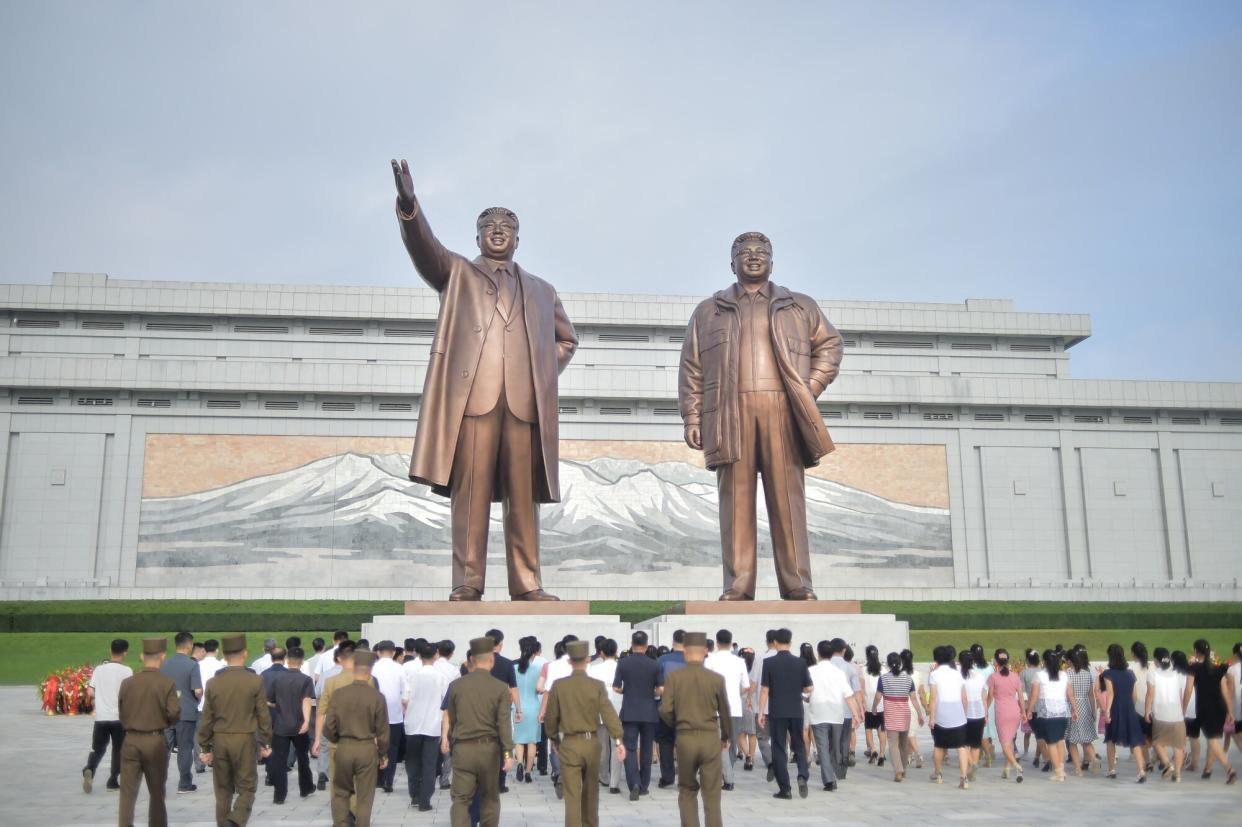North Korea Eases Covid Border Curbs to Help Economy, South Korea Says

- Oops!Something went wrong.Please try again later.
(Bloomberg) -- North Korea is easing Covid-19 border restrictions imposed nearly four years ago to help its beleaguered economy recover from the hit the country took when it sealed itself off, South Korea said.
Most Read from Bloomberg
Citadel Vets 69,000 Intern Applicants to Find Next Math Geniuses
Auto Union Boss Wants 46% Raise, 32-Hour Work Week in ‘War’ Against Detroit Carmakers
Goldman Is Selling a Wealth-Advisory Unit to $240 Billion Money Manager
China’s Worsening Economic Slowdown Is Rippling Across the Globe
3M Agrees to Pay More Than $5.5 Billion Over Combat Earplugs
“We presume there were a lot of economic difficulties North Korea faced due to the border closure,” Unification Ministry spokesman Koo Byoung-sam told reporters Monday. “There were probably many inconveniences as personnel exchanges were blocked.”
The assessment from the South Korean agency charged with managing relations with Pyongyang comes a day after North Korea’s state media reported the country would allow its citizens living abroad to return home. The border closure left stranded North Korea’s diplomats, students and thousands of workers sent to places such as Russia and China to earn hard currency for the regime.
Kim Jong Un’s decision to shut borders also slammed the brakes on the little trade the heavily sanctioned state can conduct. It led to a contraction that caused the economy to be smaller than when Kim took power more than a decade ago, according to estimates from the Bank of Korea in Seoul.
Those returning to North Korea will spend about a week in quarantine. North Korea has refused vaccine aid from the outside world, increasing the risks that its antiquated medical systems could be overwhelmed by a mass outbreak of the virus.
North Korea has given no indication of when, or if, it would allow the return of foreign aid workers who once provided food and medicine to millions of people. The United Nations World Food Program, which has suspended operations in North Korea, has said about 40% of the population is undernourished, while “food insecurity and malnutrition are widespread.”
Signs of a resumption of trade with China, historically Pyongyang’s biggest partner, led Fitch Solutions to estimate North Korea’s economy returned to growth after two full years of contraction. Still, it added that significant uncertainties still remain.
Pyongyang has increased its international interactions recently. Earlier this month, the government resumed commercial flights to Vladivostok and Beijing for the first time since early 2020, and in July allowed in the first high-level delegations from Russia and China since the start of the pandemic.
Read: North Korean Defectors Are Dying Lonely Deaths in Wealthy South
Koo said easing border restrictions would help improve the lives of civilians in North Korea, while raising concern over the possibility of forced repatriation of North Korean defectors stranded in China. Those seeking to leave North Korea typically go to a third country such as Thailand, and then eventually resettle in South Korea.
“We reiterate that the wishes of North Koreans in China should be respected and not forcibly repatriated against their will,” Koo said.
Most Read from Bloomberg Businessweek
The Next Wave of Scams Will Be Deepfake Video Calls From Your Boss
Nigeria’s Train to Nowhere Shows How Not to Build Public Transit
Lyme Disease Has Exploded, and a New Vaccine Is (Almost) Here
Stock Pickers Never Had a Chance Against Hard Math of the Market
©2023 Bloomberg L.P.


